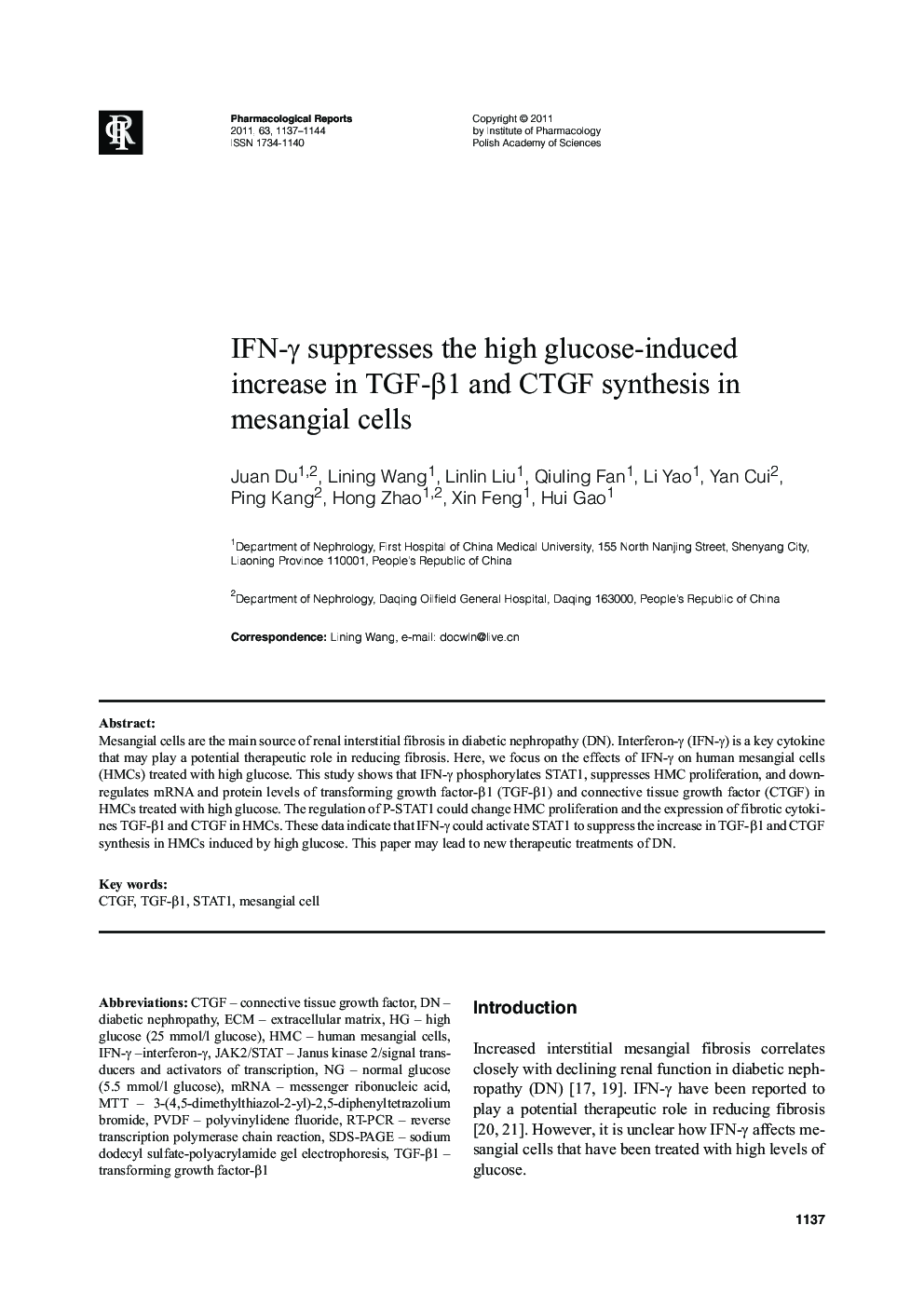| Article ID | Journal | Published Year | Pages | File Type |
|---|---|---|---|---|
| 2012440 | Pharmacological Reports | 2011 | 8 Pages |
Mesangial cells are the main source of renal interstitial fibrosis in diabetic nephropathy (DN). Interferon-γ (IFN-γ) is a key cytokine that may play a potential therapeutic role in reducing fibrosis. Here, we focus on the effects of IFN-γ on human mesangial cells (HMCs) treated with high glucose. This study shows that IFN-γ phosphorylates STAT1, suppresses HMC proliferation, and down-regulates mRNA and protein levels of transforming growth factor-β1 (TGF-β1) and connective tissue growth factor (CTGF) in HMCs treated with high glucose. The regulation of P-STAT1 could change HMC proliferation and the expression of fibrotic cytokines TGF-β1 and CTGF in HMCs. These data indicate that IFN-γ could activate STAT1 to suppress the increase in TGF-β1 and CTGF synthesis in HMCs induced by high glucose. This paper may lead to new therapeutic treatments of DN.
